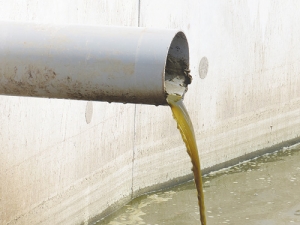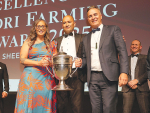Investment in dairy farm effluent systems and stock exclusion have shown good results in Northland and are a good news story, says the Northland Regional Council.
The council has recently analysed Northland's water quality data which shows steady improvement over the past 5-10 years.
Colin Dall, manager regulatory services, says the council has reviewed three regional plans – air quality, coast and water and soil – analysing historical water quality data. "This information has helped us to consider new policy and rules or changes to existing policy and rules on discharges/water quality and water takes."
At the recent Northland Dairy Development Trust Conference, council staff outlined its proposed approach to the updated regional plan. They stressed that, though the water quality results are promising, there is still room for improvement, especially in reducing sediment and pathogen levels in rivers and estuaries and nutrient levels in some lakes.
The council may change some rules on dairy farm discharges – specifically minimum pond sizes if discharging to land.
The requirement to divert roof water away from effluent systems is also being considered in order to minimise untreated and poorly treated effluent discharges to water, particularly during winter.
Council staff told Dairy News at this point there is no real shift proposed in the rules, just a tightening up of some conditions. They believe 75% of dairy farmers in Northland are performing well but about 25% may be affected by this particular rule.
Staff acknowledged there is a lot of community pressure to implement stock exclusion rules. They advised that the current water and soil plan is silent on stock exclusion and there are few restrictions on stock access to Northland's water bodies.
Rather than creating a new set of rules, the council will look at including the rules of the Sustainable Dairying Water Accord in the new regional plan.
Another initiative being looked at is phasing in stock exclusion requirements on drystock farming in intensively farmed lowland catchments. This is consistent with the recent recommendations of the Land and Water Forum.
The new regional plan is also required to include limits on water allocation (in accordance with the National Policy Statement for Freshwater Management) – the total volume of water that can be extracted from a water body.
The new regional plan may mean some farmers may require resource consent to take water for dairy shed use.
The current requirement in the regional plan is you can take up to 10m3 per day during summer and up to 30m3 per day during winter as a permitted activity.
But council staff say they may look at adjusting those volumes in some areas to help to protect reliability of supply for water users, and to protect the environment.
These new rules will be tested in a draft regional plan before moving into the formal submissions process.
Just as importantly, the council will be looking for comment on areas it is not intending to regulate, including:
Not including limits on nutrient inputs or losses from farms, as the issue with nutrients in Northland water bodies does not appear to warrant such an approach
Not limiting animal numbers on farms, as there is no clear environmental or financial justification to do that. The council is also looking to continue to provide the taking of water for reasonable stock drinking needs
Not prohibiting discharges of treated effluent to water altogether, but at certain locations and under some circumstances there may be a need to be more restrictive rules.
As in any RMA process, the Environment Court or a higher court could overturn a council decision.
However staff say they are working with DairyNZ who are helping test the science that will underpin the plan, which will be backed-up with robust monitoring and reporting.
A draft regional plan will be released soon.


















